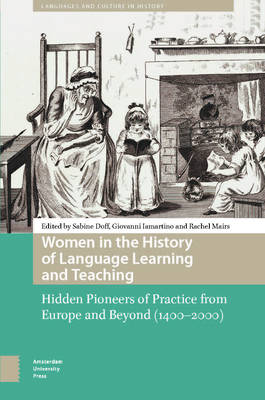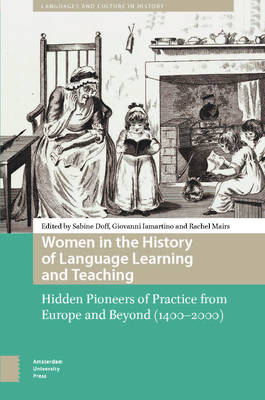
- Afhalen na 1 uur in een winkel met voorraad
- Gratis thuislevering in België vanaf € 30
- Ruim aanbod met 7 miljoen producten
- Afhalen na 1 uur in een winkel met voorraad
- Gratis thuislevering in België vanaf € 30
- Ruim aanbod met 7 miljoen producten
Zoeken
Women in the History of Language Learning and Teaching
Hidden Pioneers of Practice from Europe and Beyond (1400-2000)
€ 172,95
+ 345 punten
Omschrijving
This volume addresses the historical neglect of women's contributions to language learning and teaching. While the historiography of language education has often focused on male-dominated frameworks, overlooking the pivotal roles women have played, the case studies in this book highlight female pioneers in language education across various cultural and linguistic traditions, from the Middle Ages to the twentieth century. Covering a wide range of languages - including Greek, Arabic, French, and English - and exploring the gendered dimensions of language education, where social class and gender influence both the languages taught and the methods employed, the book reveals women's agency in shaping language education - and the systematic undervaluing of their contributions. In doing so, it calls for a broader, more inclusive historiography that recognises women's significant impact on the field, often in non-institutional and domestic contexts, and a reconsideration of the history of language education to acknowledge the contributions of women globally.
Specificaties
Betrokkenen
- Uitgeverij:
Inhoud
- Aantal bladzijden:
- 316
- Taal:
- Engels
- Reeks:
Eigenschappen
- Productcode (EAN):
- 9789048558339
- Verschijningsdatum:
- 15/10/2025
- Uitvoering:
- Hardcover
- Formaat:
- Genaaid
- Afmetingen:
- 156 mm x 235 mm

Alleen bij Standaard Boekhandel
+ 345 punten op je klantenkaart van Standaard Boekhandel
Beoordelingen
We publiceren alleen reviews die voldoen aan de voorwaarden voor reviews. Bekijk onze voorwaarden voor reviews.







